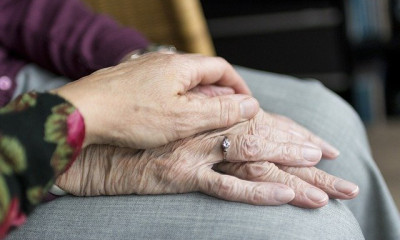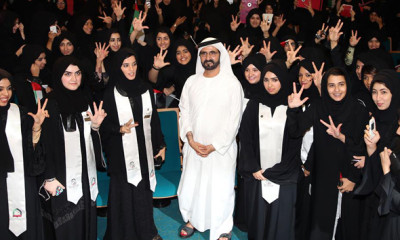
Couples experience the quality of their relationships getting impacted post- retirement. They envisaged having ample time for relaxation, pursue hobbies and travelling to their favourite destinations, but the ground realities turned different at the very onset of their golden years. Undoubtedly, retirement has to be a very enjoyable and fulfilling experience, but the situation turns nightmarish for several couples. This impacts the relationships as they struggle to adjust to the changes in their social and financial status. Retirees – and their spouses, normally find it very difficult to adjust to their new situation, causing discomfort and stress and building up frustration and dissatisfaction. Couples find the loss of their familiar routines and structures difficult to adjust to each other’s discomfort.
Psychologists say self-esteem in most cases have been found to get affected by the ending of employment, changes in income, regular social routine and status. In several cases, the desire to help and assist their children financially and socially also adds to the level of stress and causes friction between the couples. Individuals and couples find it odd to experiencing difficulties in their marriages and relationships following retirement. Counselling helps in resolving their issues and working through the challenges in a safe space. After money, the single most common worry about retirement is how it will affect one’s marriage. Suddenly having a tremendous amount of time on hands requires adjustments and addressing the issues and working out solutions. Even in the best of circumstances, retirement challenges marriage in ways one had hardly expected as retirement turns daily routines, tasks and everyday intimacy upside down.
Family counsellors say the key to a successful marriage after retirement depends on maintaining one’s own life; an agreed and fair understanding of housework; being kind to one another and communicating when things look like going wrong. One of the most common pre-retirement concerns are about personal space – or, rather, a lack of it. The dynamics of the relationship changes after retirement and one has to prepare for this transformative phase. One of the best ways to bridge the adjustment process from having employment to retirement is by doing voluntary work, together or separately. Unfortunately, retirement is the time when diverging interests and less compatibility show up. While busy working, these factors are less relevant and can be borne. Another important aim in retirement should be remaining content with life and should ensure the relationship works wonder and remain compatible.
Do men struggle more with retirement than women? Experts say women observe men struggle with retirement to a greater extent than they feel troubled by the same issue. They say some people were born to retire and others need to learn how to be retired. It has been argued for a man’s long-term physical and mental health to retire without a plan is bad and as he faces every day unstructured life after being active for long in the world of work. Retired Husband Syndrome (RHS) is a stress-related condition that affects women whose husbands have retired, causing symptoms such as depression, stress, agitation and sleeplessness. The condition itself is associated with the sudden change in work arrangements, but it is the behaviour of the retired spouse that causes RHS. Women who suffer from RHS often report that their retired husbands are driving them crazy with their behaviour like having unreasonable and increased expectations about housework; being extremely anti-social or rude; always complaining about one thing or the other and always being around and not engaging in activities outside the marriage.
How to survive retirement with your spouse? Retirement is often romanticized as a time for pursuing personal interests, travelling the globe, or starting an encore career, but for many married couples who are forced to redefine their relationship overnight, it can also be a time of stress. First of all, transitioning from work life can bring about depression that can affect personal relationships. Beyond that, there can be issues with: misaligned expectations; unsolicited advice; money; limitations; disenchantment and irksome behaviour. Even couples that get along well need to find new homeostasis in retirement for the time they spend together and apart, as well as the other domains of their life, like the division of housework. Work is a significant source of satisfaction for many adults, giving them a sense of purpose and structure for their week. Absent a reason to start their day, retirees say they feel adrift and experience feelings of sadness, which can contribute to other health conditions, such as fatigue, insomnia, weight fluctuations, and lower sex drive. The London-based Institute of Economic Affairs reported retirement increased clinical depression by 40 per cent. After retirement, be prepared for new relationship challenges and opportunities. You may not always see eye to eye, but you can keep discord at bay by communicating effectively, being willing to negotiate, and above all else, treating each other with kindness.
Can retirement ruin your marriage? A retirement study by Fidelity Investments found that one in three couples aren’t on the same page when asked to describe their expected lifestyle in retirement. Retirement is a complex and expensive phase of life. When couples stagger their retirement dates, they can reap both financial and emotional rewards that will make this vital transition easier. Communicating effectively is probably the single most important factor that predicts successful relationships, according to Roberta K. Taylor and Dorian Mintzer in their book, The Couple’s Retirement Puzzle: 10 Must-Have Conversations for Creating an Amazing New Life Together. Approaching the second half of life is an opportunity to reassess outdated rules and open up to new possibilities. It takes courage, commitment and compromise. Couples do best when they think ahead, communicate and plan together. Remember, it doesn’t matter how long you have been together, relationships are always a work in progress.
Can your marriage survive retirement? Expectations about retirement are generally off. According to Rob Pascale, author of The Retirement Maze, when we talked to people near retirement but still working, 75 per cent believed that their quality of life in retirement would improve, but only 40 per cent of retirees found that it did. People can have different mindsets and priorities when they retire, which don’t always coincide with their spouse’s. Spouses need to communicate how much time they want to spend together and apart. Retirement seems particularly hard on men who haven’t prepared for the transition. Retirement can make men feel lost, lonely, and even over-dependent on their spouse to keep them socially connected, which can add stress to a marriage. Miriam Goodman, author of Too Much Togetherness: Surviving Retirement As A Couple, found most women fear their husband’s retirement because they’re worried about losing their time and space, having their spending restricted, or being constantly questioned about where they are going or what they’re doing.
Retirement can emasculate men, particularly when their wife continues working, by stripping them of their role as the breadwinner. Women have more control over their own money now, and the stigma of divorce no longer exists. While retirement is perceived by many as an idyllic time, it can turn out cruel and stressful if couples don’t take time to discuss their thoughts and expectations for everyday life in retirement.
The Wall Street Journal in a report on the Secret to Having a Successful Relationship in Retirement, says leaving work can put a lot of strain on couples. But it doesn’t have to be that way. Communication, flexibility and recognizing that roles can change are all important to maintaining strong relationships in retirement. Nothing can ruin a successful retirement like a bad relationship. And nothing can create a bad relationship like not being prepared for retirement. A successful relationship is a key ingredient for a successful and happy retirement. In a research study it was found that many retired couples felt satisfied in their relationship, but only many years after retirement. Ten or more years is far too long to wait to experience relationship satisfaction during retirement, the report said. When couples are together for many years, balancing the competing demands of work and life, they can easily put the relationship on the back burner and focus more on work, raising children and other responsibilities. Couples should work out a comprehensive plan to adjust to retirement; the transition isn’t going to magically take care of itself. That could involve aligning financial goals, health needs, travel plans, relationships with other family members and much more. By working together, both people feel respected and valued, and self-worth and identity move away from the individual and work and to mutual needs and shared goals. Research findings indicated people who believed there was an agreement on expectations regarding such things as time spent together and affection reported higher rates of marital satisfaction during retirement. When these couples connected, it tended to be meaningful.
Even happy, well-adjusted couples will go through a period of emotional adjustments after leaving work. According to a report in the US News & World Report, the transition into retirement can create challenges for married couples. Retirement has long been considered as long-anticipated emancipation from the work world, but it is also a period of considerable change and adjustment. For couples, suddenly spending more time together may present a reality they aren’t prepared for. They may find that they no longer have as much in common as they did while they were dating and during the early years of their marriage. Create a new budget and monitor your finances together. Pursue your interests and maintain some separate friendships. Establish separate territories in your home. Get out of the house and put yourself in social situations. Treat yourself to date nights. Expect an adjustment period after you retire. Retirement can be a stressful time when many aspects of your life change at once, remarked Dave Hughes, founder of the Retire Fabulously website.
Can retirement ruin your marriage? A retirement study by Fidelity Investments found that one in three couples aren’t on the same page when asked to describe their expected lifestyle in retirement. One of the major issues that can cause friction in marriage arises when one spouse wants to retire and the other doesn’t. Retirement is a complex and expensive phase of life. When couples stagger their retirement dates, they can reap both financial and emotional rewards that will make this vital transition easier. Retirement can be the time that couples look forward to for years — a chance to renew their relationship without the pressures of going to work every day. But it can also add new stresses to a relationship, especially when one partner retires and the other is still working. Couples need to think and prepare for the mental and emotional changes that may come with retirement. Retirement could turn into a time for a person to mourn their unfulfilled dreams.































































































